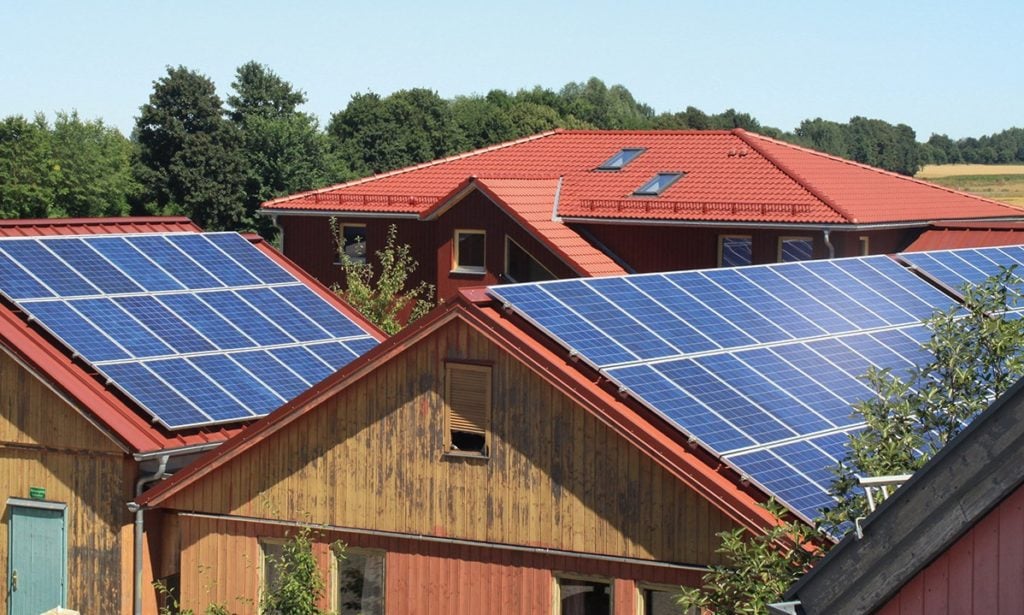
The German solar trade association (BSW) has criticised government proposals to amend its Energy Industry Act, which it said could hamper the deployment of commercial rooftop solar installations.
In a statement on Friday (25 October), the BSW highlighted the amendment’s proposal that new PV systems with an output of 25kWp should sell power directly back to the grid. It said that processes for direct selling of solar power for small producers are “inadequately digitised” and would be “neither technically nor economically feasible”.
Try Premium for just $1
- Full premium access for the first month at only $1
- Converts to an annual rate after 30 days unless cancelled
- Cancel anytime during the trial period
Premium Benefits
- Expert industry analysis and interviews
- Digital access to PV Tech Power journal
- Exclusive event discounts
Or get the full Premium subscription right away
Or continue reading this article for free
“The high direct marketing costs, usually over €1,000 [US$1,081] per year, resulting from small-scale marketing and control efforts would deter companies from using their company roofs for climate protection and solar power harvesting,” said BSW managing director Carsten Körnig.
Current legislation only requires direct marketing for systems with outputs over 100kWp, the BSW said
In its statement it added that a reduction in the threshold for direct marketing would have the “unintended” consequence of reducing the size of some residential solar installations. The BSW said most residential systems are below 30kWp but that the new legislation could restrict them to below 25kWp in the future.
The amendment to the Energy Industry Act is intended to increase grid reliability, prevent electricity supply peaks from solar generation and increase energy storage uptake in the small-to-medium scale market.
Körnig said: “Solar energy is now systemically important for the German electricity supply. This undoubtedly also brings with it responsibility for system stability. The solar industry is therefore working hard to expand electricity storage to avoid power peaks and has long been developing concrete proposals to avoid negative electricity prices.
“We appeal to politicians to remove bureaucratic hurdles for a faster expansion of storage and its system-friendly use. A further acceleration of storage expansion and a foreseeable increase in consumer flexibility will ensure that supply and demand for renewable energies are even better coordinated and the electricity grids are relieved.”
However, he warned against “throwing the baby out with the bathwater”, and said solar incentives should be maintained alongside increased system stability and storage efforts.
Germany’s last two state-backed rooftop solar tenders have been fully or over-subscribed. July saw 260MW of rooftop PV awarded in the Bundesnetzagentur’s auction, and March saw a further 264MW allocated.
Data from the BSW in June showed that Germany’s corporate and industrial (C&I) rooftop sector, which would be most directly affected by this legislation, grew in capacity by 81% in the first four months of 2024 compared with 2023. The same data showed that the first four months of 2024 saw 5GW of new PV capacity added across Germany.
Many advanced economies which have seen significant growth in distributed solar are shifting emphasis towards energy storage systems and grid resiliency. The Netherlands announced an end to its net metering scheme earlier this year which prompted the country’s solar association to call for greater incentives for self-consumption and energy storage systems.






